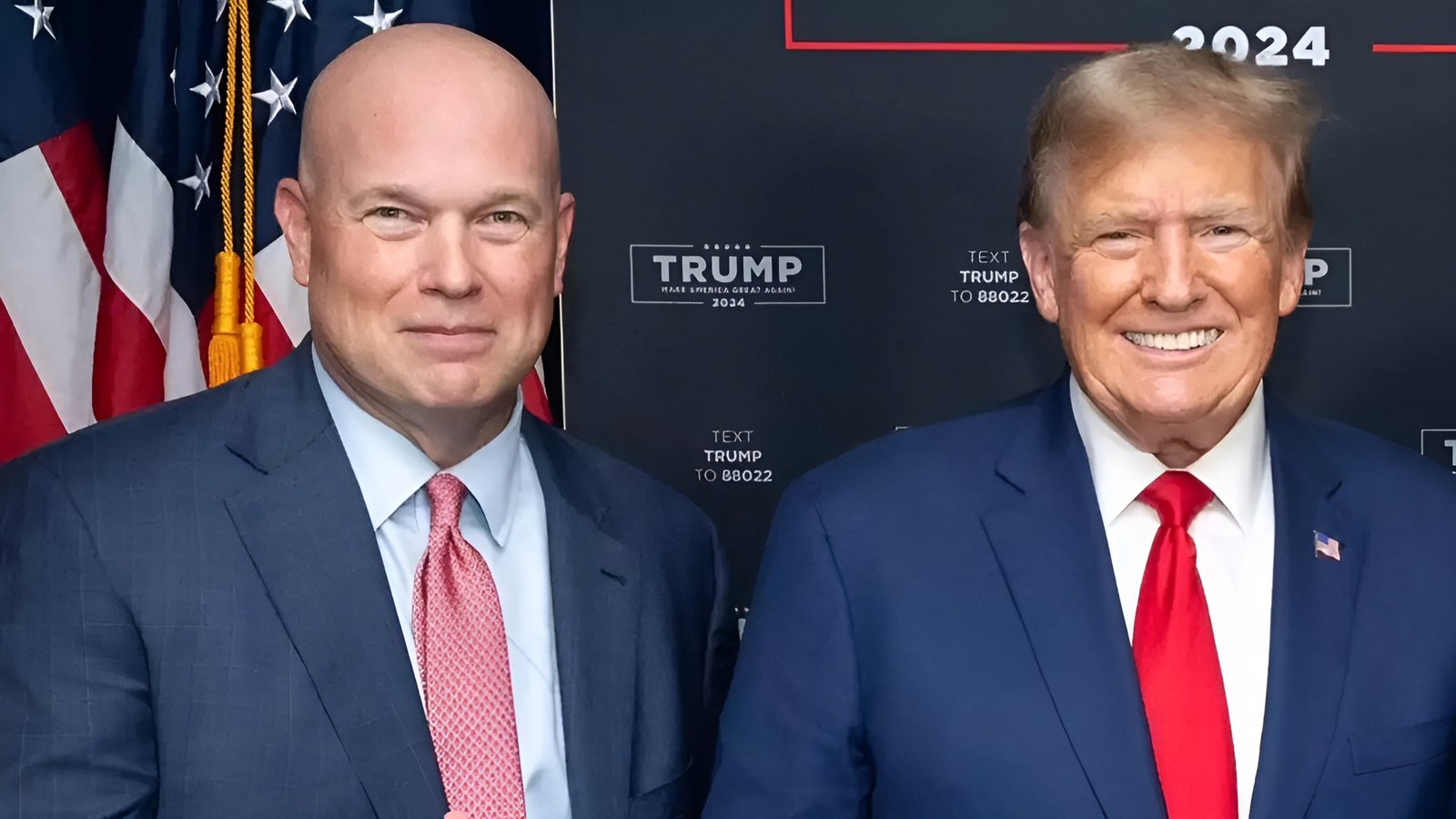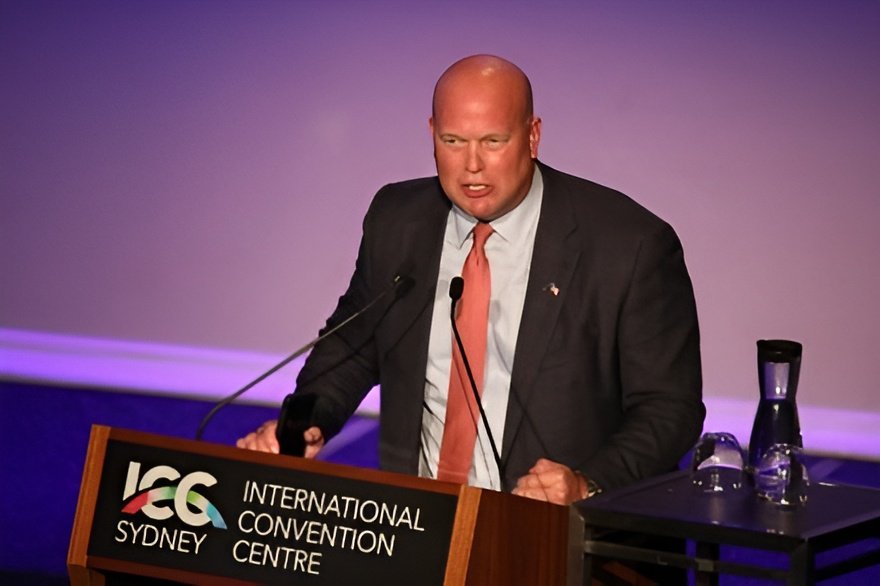
Trump Taps Matthew Whitaker as NATO Ambassador: What It Means for U.S. and Global Relations
In a move that has sparked significant debate, newly elected President Donald Trump has nominated Matthew Whitaker, the former Acting Attorney General, as the United States Ambassador to NATO. This surprising decision underscores Trump’s focus on loyalty and his “America First” agenda, signaling potential shifts in the U.S.’s role within the alliance.
Whitaker, known for his staunch defense of Trump and controversial tenure as Acting Attorney General, brings a background rooted in domestic law rather than foreign diplomacy. This appointment, however, aligns with Trump’s tendency to prioritize allies who share his vision over traditional political credentials.
The Significance of Matthew Whitaker’s Nomination

Whitaker served as Acting Attorney General from November 2018 to February 2019, stepping into the role after Jeff Sessions’ resignation. During his tenure, Whitaker garnered attention for his vocal criticism of the Russia investigation and his unwavering loyalty to Trump.
By selecting Whitaker for a key diplomatic role, Trump demonstrates his commitment to reorienting U.S. foreign policy. Whitaker’s nomination sends a message that NATO diplomacy under Trump’s potential second administration will prioritize American interests and a no-nonsense approach to multilateral agreements.
Trump’s Complex Relationship with NATO
Throughout his first presidency, Trump often criticized NATO, accusing member nations of not contributing their fair share to defense spending. He questioned the alliance’s relevance and even hinted at withdrawing the U.S. if European nations failed to meet their obligations.
While Trump’s critiques were met with resistance from NATO allies, they also spurred increased defense spending among European nations. Whitaker’s appointment may further amplify these dynamics, as his leadership will likely reflect Trump’s vision of a leaner, more cost-effective alliance.
Why Whitaker? A Look at His Credentials

Whitaker’s background as a lawyer and former federal prosecutor contrasts sharply with the traditional diplomatic resumes of past NATO ambassadors. His qualifications include:
- Legal Expertise: A former U.S. Attorney for the Southern District of Iowa.
- Acting Attorney General: Oversaw the Department of Justice during a tumultuous period in the Trump administration.
- Media Presence: A vocal supporter of Trump, frequently appearing on conservative media outlets to defend the former president’s policies.
Though not steeped in foreign affairs, Whitaker’s alignment with Trump’s “peace through strength” philosophy and assertive leadership style make him a clear choice for this administration.
The Impact on NATO Dynamics
Whitaker’s appointment may spark mixed reactions within NATO. The alliance is currently navigating heightened global tensions, including Russia’s war in Ukraine, increased Chinese influence, and threats from Iran and North Korea.
Potential Challenges
- European Concerns: Trump’s skepticism of NATO has already caused unease among European allies. Whitaker’s lack of diplomatic experience might exacerbate these concerns.
- Policy Shifts: A Trump-Whitaker approach could prioritize transactional relationships over collective security, potentially straining alliances.
Opportunities for Reform
- Increased Defense Spending: Whitaker may continue pressuring European nations to meet the 2% GDP defense spending benchmark.
- Strategic Realignments: His focus on U.S. interests could lead to more efficient resource allocation within the alliance.
Broader Implications for Trump’s Cabinet Picks
Whitaker’s nomination is part of a larger trend in Trump’s post-election cabinet selections. These choices reflect a mix of loyalty, media prominence, and alignment with Trump’s agenda. Notable appointments include:
- Dr. Mehmet Oz as head of the Centers for Medicare & Medicaid Services.
- Robert F. Kennedy Jr. as Secretary of Health and Human Services.
- Matt Gaetz as Attorney General.
These appointments illustrate Trump’s unconventional approach to governance, prioritizing loyalty and shared ideology over traditional qualifications.
Response to a Trump Administration
As Trump prepares for a potential second term, NATO faces a critical juncture. Secretary General Mark Rutte recently emphasized the need for unity amid threats from Russia and other adversarial powers.
Trump’s re-election has raised questions about the U.S.’s commitment to the alliance, given his previous critiques of NATO’s collective defense principle. Whitaker’s role as ambassador will be pivotal in clarifying the U.S.’s position and shaping NATO’s future trajectory.
Public and Political Reactions
Reactions to Whitaker’s nomination have been divided.
- Supporters: Conservative commentators view Whitaker as a strong, decisive figure who will prioritize American interests within NATO.
- Critics: Opponents argue that his lack of foreign policy experience and controversial history make him an unsuitable choice for such a critical role.
Social media has been ablaze with commentary, reflecting the polarizing nature of this appointment.
Conclusion: What Lies Ahead?
Matthew Whitaker’s nomination as NATO ambassador signals a potential shift in their relations. His leadership will likely reflect Trump’s emphasis on reasserting U.S. dominance and demanding accountability from allies.
As global tensions rise, Whitaker’s ability to navigate NATO’s complex political landscape will be tested. His nomination represents both an opportunity for reform and a challenge to the alliance’s traditional dynamics.
One thing is certain: under a Trump-Whitaker administration, NATO’s future promises to be anything but predictable.
Do Follow For More News: Dailyforesight



